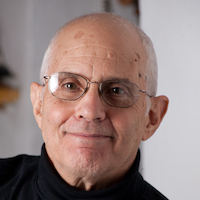View this post on Instagram
“Our lives are not our own. We are bound to others, past and present, and by each crime and every kindness, we birth our future.” ~ Cloud Atlas
Diversity is one of the great treasures of life in America, and it pains me that not everyone feels this way.
Almost every weekend, my wife and I hike on a wooded trail in Los Angeles. The hikers we come across are as diverse as the passengers on a New York subway. Judging from their faces and accents, their ancestral roots are in Europe, Asia, Africa, the Hispanic Americas, and the Middle East.
We hear accented English and occasionally Spanish, Chinese, Hindi, Hebrew, French, Italian, Russian, and languages we can’t identify. We pass so many people of Iranian descent that we’ve taken to calling it the Persian Trail and learned to say “Good morning” in Farsi.
I cherish the diversity. Some people are bewildered by the variety; many find it discomfiting or even threatening. Some hold pluralism in such contempt that they lash out against it with bitter words, vindictive policy proposals, and, tragically, violent rage.
As is distressingly evident in the news, the tension between those who value cultural, ethnic, and religious diversity and those for whom the “other” is an existential threat has surfaced in ugly ways throughout the world. It explains, in large measure, the shocking ascendancy of Donald Trump and the rise of ethno-nationalists in Europe. Sometimes it manifests in absurdity, like the passion for Trump’s wall among people who live thousands of miles from the border; and sometimes it explodes in deadly clashes over power or resources.
It’s the same as it ever was—since way back when “us versus them” first competed for a water hole, or a hunting ground, or mates, or the favor of gods. Sorting out what makes some people pluralists and others exclusivists may be one of the more important issues confronting us as a civilization. One obvious difference is exposure.
I grew up in Brooklyn, long before that densely populated borough became a hipster nexus. Back then, Brooklyn was a symbol of The Melting Pot, a place where immigrants and transplants of different origins mingled in schools, workplaces, restaurants, bars, buses, subways, theaters, parks, and stadiums. The familiarity bred far more acceptance than contempt.
The polyglot neighborhoods of my youth were by no means immune to bigotry, racism, and hypocrisy. Some of the whites who cheered for Jackie Robinson and abhorred overt Southern racism would panic if a black family moved into their apartment building. Many a decent person with close pals and coworkers of different races and religions drew the line if their child fell in love with one.
But the boundaries faded over time; with each new generation, mingling became more natural and more intimate, often leading to intermarriages that reshuffled the gene pool in new and beautiful ways. That evolutionary tendency is universal, and it’s one good reason to be optimistic.
But exposure and time may not be enough. Differences in individual character and consciousness have to be accounted for too. Research shows that people operate at different levels of intercultural competence.
At the lower levels, where differences are perceived as threats to our way of life, we see fear and rage and barrier-building. Research also identifies different levels of spiritual and religious development. The spectrum reflects varying perceptions of the divine, different definitions of god, and the like, but it also locates individuals on a continuum of expansiveness.
At lower levels, where god is anthropomorphic and dogma, mythology, and obedience to authority are primary, outsiders are seen as a threat, or objects of derision, or targets of conquest and conversion. At higher stages of development, marked by what seminal researcher James Fowler called a “taste and feel for transcendent moral and religious actuality,” we find “devotion to universalizing compassion” and “enlarged visions of universal community.”
So, as with so many other issues, how we deal with diversity hinges on the widely neglected variable of individual consciousness. Part of the solution, therefore, is education, and one hopeful sign is the emergence of disciplines that train people in cultural proficiency, such as how to interact appropriately with people who are different.
Ultimately, however, this is a spiritual issue. I don’t just mean doing away with religious teachings that exacerbate enmity toward the “other.” I mean the deeper, more subtle issue of expanding spiritual awareness.
Deep spiritual practices like meditation expand the locus of one’s identity, moving our internal center of gravity from an egocentric orientation outwardly, through widening circles of family, community, nation, humanity, the planet, and the cosmos.
Eventually, we don’t just understand intellectually that we’re connected to all other beings, we sense it, we feel it, we know it in the depth of our souls. In that consciousness, the “other” is not a threat, or a nuisance we’re forced to put up with, but part of ourselves and therefore worthy of kindness, concern, and empathy.
That progressive expansion of one’s kinship circle is not just a noble aspiration. It breaks down barriers and raises our capacity to give and receive love. We need to cultivate it, both for ourselves and the future of humanity.


 Share on bsky
Share on bsky




Read 1 comment and reply